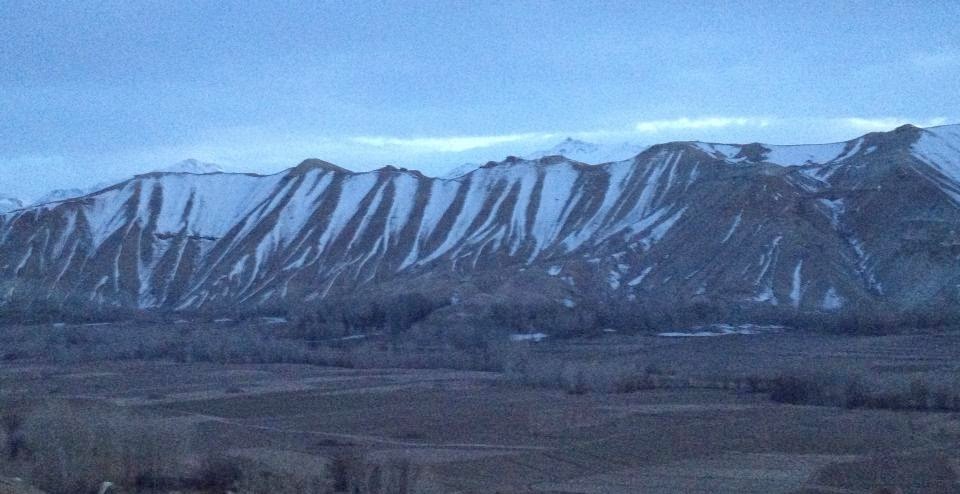Addict parents in the world’s most drug-affected Afghan region are feeding their own children opium to keep them quiet and selling off relatives to fund their own heroin habits. Metro has found.
Worst-hit is the town of Shortepa in the Afghan province of Balkh, not far from the Uzbekistan border and along a trafficking route taking freshly-farmed opiates from source out into the rest of the world.
Such is some sufferers’ desperation to fund their habit, almost any money-making ruse will do – which is why 36-year-old Abdurahim Mutar admits trading in his own sister Tazagul, then 18 and now 22.
Meanwhile, his wife Seema, 22, was forcing some of her stash upon four-year-old daughter Madina and son Zabihula, two – and Abdurahim’s mother Zarghona, 58, and brother were indulging as addicts as well in a toxically-grim family affair.
Afghanistan is responsible for farming 90 per cent of the world’s opium and has 1million addicts of its own, more than any other country.
Yet only an estimated 10,000 each year are being treated, with only 21 of the country’s 34 provinces offering rehabilitation centres.
Abdurahim says he was addicted for 13 years – long enough, perhaps, but dwarfed by many here counting back at least two decades – and blames his mujahedeen days in the mountains.
Army colleagues apparently urged him to try opiates they felt necessary to get through their arduous days, but blue-collar workers here claim their drudgery duties picking plants make drugs tempting as well.
Yet Abdurahim also confessed: ‘When my daughter was one, we’d give her opium because she was crying a lot. She’d reject eating it but we’d give her the drugs by force.
‘We just weren’t aware it was dangerous or it would create health problems. If anything, we thought at the time it would be beneficial. It’s very common here.’
He had spent many hours since marrying trying to persuade his wife his drug habit was purely to treat a long-standing stomach-ache, only to find her unconvinced yet also tempted to try what he was taking.
It was only, ultimately, when he was pushed into Islamic Relief UK-supported treatment – in-house in Shortepa, while his wife like other women was treated at home – that he acknowledged the costs involved: not just 400 Afghanis each day but the obvious family neglect.
His sister Tazagul was traded away for $6,500 (£3.950) - sold to someone living in a distant region to help prop up the family finances and afford food as well as drugs.
Abdurahim said: ‘She accepted this. I was happy to get a lot of money for her, spending it without really thinking about where it came from.
‘Now I wish I’d used it better - for a vehicle or some property, perhaps.’
He also fatefully hesitated when asked to recall his baby son’s own name – as did 53-year-old recovering addict Mohammad Qul when asked to identify his own children.
Elsewhere, Kabul-based refugee camp resident Shah Bibi, 24, told of the dark secrets she only belatedly discovered about her heroin-addicted husband Ghafoor.
Only after his death last year did Shah realise his debts of 350,000 Afghanis (£3,770), accrued while working in the United Arab Emirates, had prompted him to promise elsewhere his daughters Farida, eight, and six-year-old Parwina.
Shah’s brother managed to intervene and cancel the deal for poor Farida, though only on the promise she be married off to someone from his sister’s own clan.
Dubious as such morals may seem, clinic staff in Balkh try to play upon religious devotion – or guilt – in their attempts to wean patients off drugs.
Posters above lines of men’s beds in the wards declare: ‘Every intoxicant is khamr [Arabic for liquor] and every khamr is harmful.’
Staff such as director Dr Mohammad Ehsan Hamrah take pride in a relapse rate of ‘only’ 50 per cent – meaning half of all supposedly-cured addicts fall back into the habit.
Then again, he points out other areas typically find as many as seven in ten patients are unable to remain drug-free once discharged.
Since opening in 2000, the 14-bed Shortepa centre has treated more than 1,500 people and the addiction rate across the province is said to have fallen.
While precise figures remain elusive, Dr Ehsan insisted: ‘Back in 2006 most families had addicts in them – not most families are without any addicts. This is our biggest achievement.’
And yet an estimated 99 per cent off addicts nationwide remain without formal help - often to their own families’ cost and loss.


















